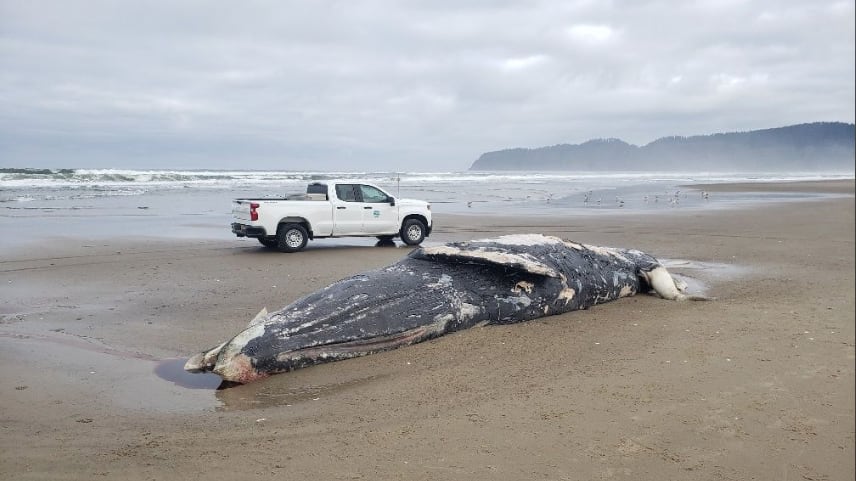Well, I guess this is growing up.
On Saturday, the carcass of a 40-foot grey whale washed up on the shore of the Sand Lake Recreation Area north of Pacific City. For longtime Oregonians, news of a dead whale appearing on a local beach should ring a few alarm bells—or rather, alarm dynamite.
In case you don't know the story, in November 1970, a sperm whale of roughly the same size washed up on the beach in Florence, Ore. Local officials considered several methods of disposing the body, like dragging it out to sea. Ultimately, they went with the most exciting option available—blowin' it up real good.
It was a bit of a disaster. The dynamite blew chunks of whale flesh 800 feet in the air, raining viscera down on bystanders and destroying a car in the adjacent parking lot. It's a moment that has lived in infamy ever since, most recently being appropriated by a town in England as a coronavirus allegory.
Now, faced with yet another massive, rapidly decaying mammal, beach rangers had an opportunity to thrill us with yet another spectacle, and give the state something to unify around in this uncertain time.
What did they do? They just buried it instead.
Sure, one could argue this is the far more responsible way to get rid of a rotting whale corpse. But blowing up dead whales is our birthright as Oregonians, whether we were actually born here or not. It might not be a great idea. But it's our idea. And anyway, since when has bad ideas stopped anyone from doing anything?
Look, the world is topsy-turvy right now, and our way of life is being permanently altered by forces largely outside of our control. But ask yourself this: Do you really want to live in a state that won't dynamite giant animal carcasses when given the chance?
Give me exploding whales, or give me death! Preferably via a traumatic head injury caused by flying blubber.
